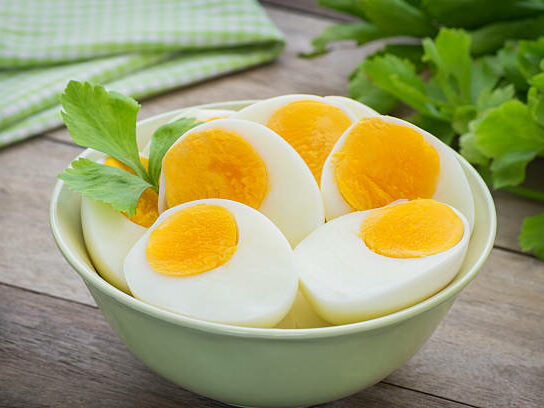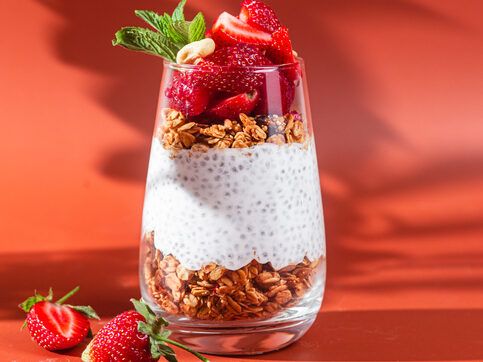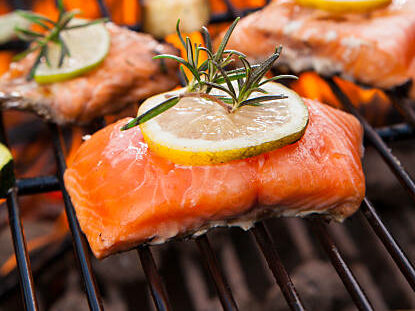To all the fitness enthusiasts who are reading this, have you ever dreamt of sculpting your dream physique?
Building muscle isn’t just about lifting weights; it’s also about feeding your body the right fuel.
Through this article, we have highlighted a list of protein-packed foods that will give your muscles the building blocks, that they need to grow stronger and leaner.
So leave behind your fad diets and embrace these natural powerhouses to take your fitness journey to the next level.
1. Egg

Eggs are a source of protein, for your muscles! They contain all the nutrients needed to strengthen and repair muscles. A single egg provides around 6 grams of protein which is 13% of its total calorie content. Also, eggs are rich in nutrients, like B vitamins, choline and healthy fats, making them nutritious. You can prepare eggs in ways – scrambled, poached or boiled – to incorporate more protein into your meals.
2. Nuts and Seeds

These tiny nuts are like nutrition superheroes! Just one ounce of almonds gives you approximately 6 grams of protein, making up approximately 14% of its calories. Nuts and seeds are a handy and smooth way to get protein, precise fats, fibre, and plenty of nutrients and minerals. Almonds, cashews, walnuts, peanuts, pumpkin seeds, and chia seeds – they’re all tremendous alternatives. Munch on them as a healthy snack, throw them in yoghurt or oatmeal to make it yummier and greater protein-packed, or just have a spoon of nut butter as your evening snack.
3. Chicken

Opting for chicken breast is a way to maintain a lifestyle! It’s lean on fat and rich in protein making it a suitable option for any plan. A portion the size of a deck of cards provides 25 grams of protein which accounts for about 63% of its calorie content – ideal, for aiding muscle recovery post-exercise. Chicken can be prepared in ways – whether grilled, baked in the oven or sautéed with vegetables – and always delivers a taste while promoting wellness.
4. Greek Yogurt

Greek yoghurt stands out for its high protein content. Compared to yoghurt, Greek yoghurt typically contains double the amount of protein. A serving of 6 ounces of Greek yogurt provides 17 grams of protein accounting for roughly 20% of its total calories. Additionally, this delicious option is lower, in sugar and carbohydrates making it a favourable choice, for those aiming to reduce their sugar intake.
5. Beans

Beans may look plain, but they are like a superhero for constructing muscular tissues. If you cook dinner with about one cup of black beans, you get around 15 grams of protein, making up about 25% of its calories. Beans are also filled with fibre, lots of nutrients, and minerals, and they’re a budget-pleasant way to get greater protein. Try special sorts like kidney beans, black beans, and lentils to feature some variety and flavour in your food. You will have them in soups, salads, or as an aspect dish with your principal meal.
6. Salmon

Salmon isn’t simply tasty; it is excellent for your muscle tissue and your ordinary fitness. If you have about three ounces of salmon, you get around 17 grams of protein. It additionally has 1.5 grams of something known as omega-three fatty acids, which might be like magic to your muscular tissues. Studies even say that having 2 grams of omega-3s every day can assist in constructing muscle. So, ingesting salmon is a splendid desire to recover after exercise, grow your muscle tissue, and maintain your entire frame healthfully.
7. Canned Tuna

Canned Tuna is a mystery weapon for building muscles! If you have got about 3 oz of it, you get nearly 20 grams of protein, making up about seventy per cent of its energy. It’s not only the simplest and cheapest but also smooth to have. Tuna is likewise full of essential nutrients like A and B vitamins (B12, niacin, and B6), which hold you healthy, and lively, and help while you’re working out. So, including tuna in your meals is a clever move for building muscular tissues and staying matched.
8. Buckwheat

This unique seed is quite exquisite and full of appropriate stuff. If you prepare dinner a cup of buckwheat groats, you get about 6 grams of protein. But the cool part is, that it combines fibre, complex carbohydrates, and many critical nutrients and minerals. It also contains vitamin B, magnesium, manganese, and phosphorus, which might be all remarkable in your body. Adding buckwheat to your food may be a clever move for a healthful and balanced diet.
9. Scallops

If you need protein without blowing your calorie restriction, try scallops! These tasty little bites are ideal for keeping energy in check. If you have 3 ounces of scallops, you get around 17 grams of protein. They’re like the food plan-pleasant superheroes of the seafood world, much like shrimp, tilapia, and lean poultry. So, in case you are keeping an eye fixed on calories, scallops are an exceptional preference for getting your protein fix.
10. Edamame

Edamame might be small, however it is large on protein! These little raw soybeans provide you with about 18 grams of protein in just one cup. And it is now not just about protein – edamame additionally has fibre, folate, diet K, and manganese, which are all proper things your frame wishes. So, including edamame in your food is like giving your weight loss program a healthful enhancement.
Conclusion
The key to building strong and lean muscle is to keep a check on your daily protein intake. Try to consume protein-packed food with each meal to have a wholesome food experience. Remember, staying healthy is a journey not an overnight experience.
Frequently Asked Questions
What to drink to gain muscle?
Whey is a top choice for those wishing to gain muscle because it may be absorbed more rapidly than other types of protein, and it contains all nine essential amino acids (we must get these from food, as our bodies cannot make them).
Which protein is best for muscle gain?
Whey protein is highly digestible and absorbed quickly compared to other proteins, making it a popular choice among athletes, bodybuilders, and fitness enthusiasts.
Which food has the highest protein to gain muscles?
Eggs, dairy products – milk, yoghurt (especially Greek yoghurt), cheese (especially cottage cheese) nuts (including nut pastes) and seeds – almonds, pine nuts, walnuts, macadamias, hazelnuts, cashews, pumpkin seeds, sesame seeds, sunflower seeds.

